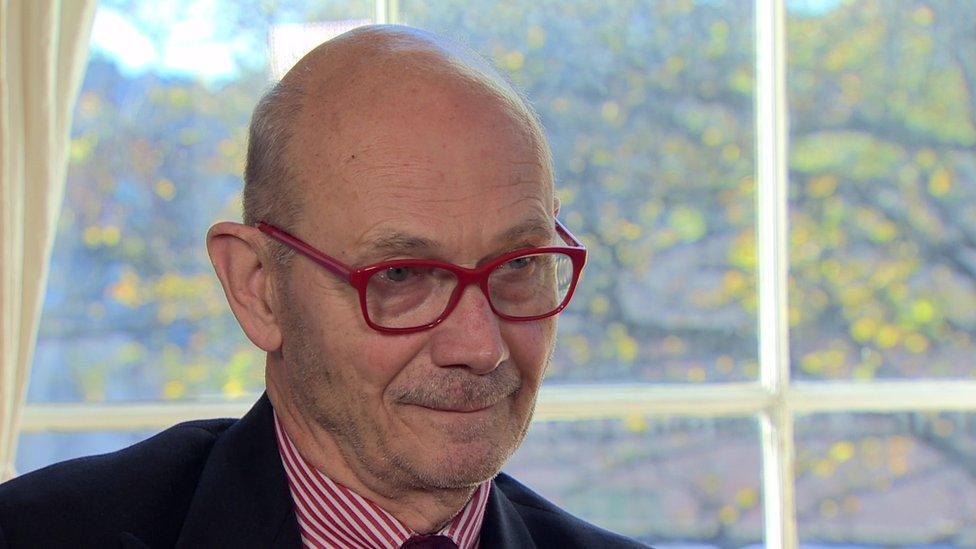NI could be 'autonomous customs territory' after Brexit
- Published

Pascal Lamy has suggested that Northern Ireland could become an 'autonomous customs territory' after Brexit
The former Director General of the World Trade Organisation (WTO) has suggested that Northern Ireland could become an "autonomous customs territory" after Brexit.
Pascal Lamy said Northern Ireland could then choose to mirror EU trade and customs policy so avoiding the need for checks at the Irish border.
However, that would mean customs enforcement on trade between NI and the rest of the UK.
Unionists and the UK government have already said that would not be acceptable.
Any tariffs on trade between Great Britain and Northern Ireland would also be economically damaging as GB is by far Northern Ireland's largest external market.
Mr Lamy was speaking ahead of a speech at the Institute of International and European Affairs in Dublin.
Examples of autonomous customs territories include Macau, which is part of China but has its own WTO membership and operates its own trade regime.
'Magic wand'
Mr Lamy said it is just one idea and may have complications but "we have to confront reality" rather than pursuing the "dream" of frictionless borders.
He said a customs frontier at sea ports might be cheaper and easier to enforce.
"If I'm in business I don't mind the legalities or the politics, I want easy trade," he added.
"Let's look for the least disruptive option.
"I don't have a magic wand but we will need to invent something."
He warned that customs enforcement will have to happen even if there is a zero-tariff trade deal between the EU and UK.
"You need a system that checks that the goods to which you give the zero tariff came from the UK - certification of origin," he said.
Mr Lamy said Northern Ireland could choose to mirror EU trade and customs policy so avoiding the need for checks at the Irish border
He said that if the UK chooses to operate different product standards from the EU that will also necessitate checks.
"This reality has to permeate the ambience of the negotiations. What I see is that we are not there yet."
Mr Lamy served as EU trade commissioner from 1999 to 2004, before taking the top job in the WTO.
He suggested that it could take more than 10 years to fully implement a deep and comprehensive trade deal between the EU and UK.
He said it takes on average five years to conclude a trade deal and then a transition period of a similar length.
"You cannot implement the result of a negotiation overnight. Economic operators have to adjust and they have to plan."
- Published20 October 2017
- Published15 August 2017